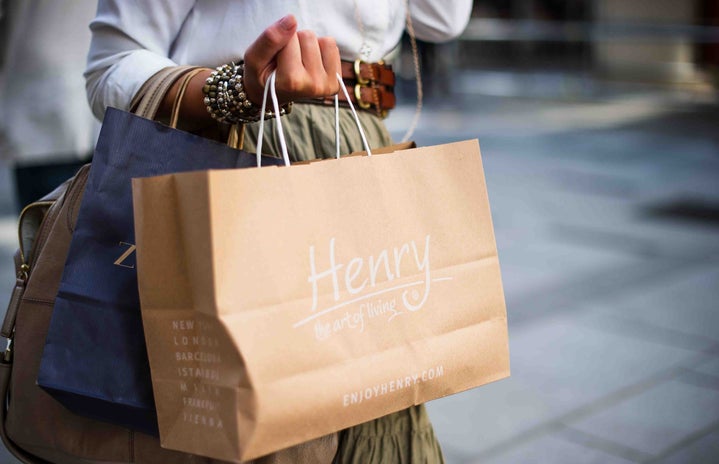This article is both a cry for help, and an attempt to answer this question.
The nicest part of any day, according to memes, TikTok, and other social media posts, is when a package containing an item you ordered finally arrives. Placing an order and following its progress right up to your doorstep while it gets delivered is, admittedly, immensely satisfying. These memes are now frequently connected to mental health, whether placing an order “simply to feel something” or utilizing the time spent waiting for a shipment to arrive as motivation for the future.
Shopping as a coping method is not a novel idea. In the past, retail therapy was frequently connected with going to the mall or a store and making an impulse purchase of something frivolous or expensive. However, with everything accessible with only a tap, thanks to phones and social media, retail therapy has become even more convenient (and even more straightforward, a double click on the side button that has your payment methods all linked up). Research shows that when the pandemic broke out last year, there was a sharp increase in online shopping, with many shoppers acting impulsively.
A shoutout to retail therapy in media aptly addressed in P.J. Hogan’s ‘Confessions of a Shopaholic’ (2009). It involves carelessly taking tequila shots instead of paying your expenses. Impulsive actions that backfire include hoarding your entire wardrobe—including your bridesmaid’s dress—until your best friend’s wedding, only to panic and buy back a cocktail dress for a business event. Making exaggerated claims such as “I’m turning my life around!” because you genuinely believe them. Sincerity is damned; it’s easy to connect with this ridiculous movie. It is well-paced, fluffy, and rife with many shimmering sound effects and vibrant colors.
There are several reasons why we turn to shopping when we’re depressed, especially online. One of the main reasons is a sense of control. When people are continually faced with pandemics, mental illness, demanding schedules, and terrible life and news events, buying what they want and think will make them happy helps them regain any lost control. Online buying is also similar to playing the lottery; you never know what you’ll find if you browse business websites, and your mind is telling you to keep browsing just in case you come across anything that would be ideal for you to purchase. Retail therapy has been shown in one study to lessen depressive symptoms.
Although we don’t always need to try to explain purchases that make us happy, retail therapy can be helpful. However, it can rapidly become an unhealthy coping method when used repeatedly. Businesses with a brazen profit motive exploit the idea of retail therapy and use it as an excuse to repeatedly push their products on unsuspecting customers, particularly those related to self-care and wellness. The urge to shop can be even harder to resist now that many social media platforms have several tailored adverts inserted automatically on their feeds.
What can you do if you want to cut back on your online shopping but spend a lot of time on social media (especially when you’re nervous or sad) and continually see tailored adverts for products that are ideal for you to buy? Again, treating yourself on occasion is nothing to be concerned about, but you get to decide how often it happens. You can also make your own versions of these goods or look around to see if anyone is selling similar used products as replacements. Using adblockers and disabling targeted advertising can both be quite helpful. Give yourself a little to spend each month for those times when you want to buy something that appears ridiculous and pointless online if you wish to have stricter restrictions.
In all good humor, rise up, dear reader. You’re not just a cog in the machine. Next time you find yourself having an “add to cart” type of day, step back and think, do you really want to let the businesses win?


